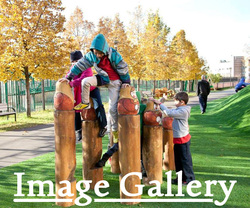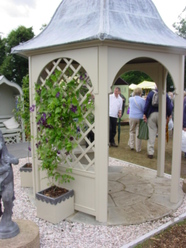- Home
- Why Greenstone
-
Services
-
Gallery
- Dementia sensory gardens
- International School grounds design - AAS Moscow
- Natural play in Early Years - North Islington
- Sensory play gardens - Hickory House
- Special needs schools - sensory play
- Sensory gardens for mental health - residential care village Norwood
- Stressed execs - residential sensory gardens
- Outdoor classrooms and community gardens
- Eco resorts - Portugal, Malaysia
- News
- Links
- Publications I Press
Care homes / rehab gardens
Quote
As Sir Richard Thompson, Thrive Patron and President of the Royal College of Physicians said: "Drug therapy can be really expensive, but gardening costs little and anyone can do it."
Seasonal interest
Sensory gardens appeal due to the multiple nature connection points.Today, more than ever we need sensory gardens in schools, universities, retirement homes, rehab centres, dementia care homes, social housing to rebalance our lives, reduce stress, ease and prevent depression and improve health and well-being. Nature deficit disorder is a term coined to describe the negative health, well-being, and educational outcomes linked with an absence of trees, birds, sun, shade, views, soil, flowers. Sensory gardens provide the necessary nature connection points.
Seasonal interest and variety throughout the year are important. “It is good for sensory impaired individuals to have multiple sensory-stimulation environments, with plants selected for fragrance, texture, and colour, in a sequence of colour from spring to summer, summer to autumn, autumn to winter, and back to spring."
For people living with dementia sensory gardens provide deep memory prompts. Through incorporation of meaningful activities requirements for drug therapies are reduced, staff and clients are less stressed. Familiar seasonal variation in planting, integrated textures and obvious way finding are essential.
Seasonal interest and variety throughout the year are important. “It is good for sensory impaired individuals to have multiple sensory-stimulation environments, with plants selected for fragrance, texture, and colour, in a sequence of colour from spring to summer, summer to autumn, autumn to winter, and back to spring."
For people living with dementia sensory gardens provide deep memory prompts. Through incorporation of meaningful activities requirements for drug therapies are reduced, staff and clients are less stressed. Familiar seasonal variation in planting, integrated textures and obvious way finding are essential.
Sensory Gardens for dementia, residential and respite care homes' therapy gardens

Sensory gardens offer diversity
Sensory gardens in the 1980s were "gardens for the blind" with some smelly lavender and spiky sea holly, if you were lucky. In ancient Egypt, the birthplace of gardens as we know them, sensory gardens are documented from 5,000 years ago. Like ancient sensory gardens, modern sensory gardens now offer so much more. Sensory gardens today offer gentle re-balancing for the over stimulated or sensory impaired.
Greenstone Design UK are recognised internationally for our design of sensory gardens for adults and children in need of nature connection and /or additional sensory stimulus. We were commissioned to design sensory gardens for Europe's first disabled children's resort, at Centre Algarve, in Portugal. In the UK we have designed numerous schools' and care home sensory gardens, from Carlisle to Southampton.
One of the appeals of modern sensory gardens is their cost effectiveness. As providers and health commissioners struggle to balance the books, sensory gardens have been proven to provide real value for money against costs of care. A recent NHS study shows savings of 5 GBP for every 1 GBP invested in "green" health interventions. Sensory gardens offer a haven for the elderly, infirm, stroke rehab patients, individuals with dementia. Children with developmental delays respond well to sensory gardens also.
"There is evidence to suggest that as mental capacity changes in people with dementia, some patients will function more on a sensory level rather than an intellectual level. In a sensory garden patients have the opportunity to hear and experience sounds and smells of the garden through plants, water features, birds and the activities of people using or working in the garden space. Patients who are chair bound could be transferred by wheelchair to experience the garden, and patients who are nursed in bed where open windows can give access to the sights and smells of the garden can also enjoy it." -Social Care Institute
Our sensory gardens are:
As specialist sensory garden designers, Greenstone Design UK works with multi disciplinary teams of care givers, medical professionals, architects, developers and families, to develop sensory gardens that respond to the needs of the residents, school, hospital or community.
As environmental design consultants we promote Environmentally Sustainable Design, allowing business owners to meet or exceed their environmental requirements. Cost effective rainwater harvesting, rain gardens and bio-diverse planting to attract wildlife brings a sustainable sensory garden within reach of care homes everywhere.
Greenstone Design UK are recognised internationally for our design of sensory gardens for adults and children in need of nature connection and /or additional sensory stimulus. We were commissioned to design sensory gardens for Europe's first disabled children's resort, at Centre Algarve, in Portugal. In the UK we have designed numerous schools' and care home sensory gardens, from Carlisle to Southampton.
One of the appeals of modern sensory gardens is their cost effectiveness. As providers and health commissioners struggle to balance the books, sensory gardens have been proven to provide real value for money against costs of care. A recent NHS study shows savings of 5 GBP for every 1 GBP invested in "green" health interventions. Sensory gardens offer a haven for the elderly, infirm, stroke rehab patients, individuals with dementia. Children with developmental delays respond well to sensory gardens also.
"There is evidence to suggest that as mental capacity changes in people with dementia, some patients will function more on a sensory level rather than an intellectual level. In a sensory garden patients have the opportunity to hear and experience sounds and smells of the garden through plants, water features, birds and the activities of people using or working in the garden space. Patients who are chair bound could be transferred by wheelchair to experience the garden, and patients who are nursed in bed where open windows can give access to the sights and smells of the garden can also enjoy it." -Social Care Institute
Our sensory gardens are:
- Accessible, safe, inclusive spaces
- Abundantly planted. Raised beds complement in-ground planting to bring scent and colour to eye level for mobility scooters and wheelchair users. Low maintenance planting is possible without looking municipal!
- Sustainable. Water features are essential as a nature connection point - all life depends on it so we must use it wisely
- Edible. Sensory gardens need to be non-toxic at worst, but at best, edible- the action of eating is the only action that uses our 5 main senses at once.
- Textured. Pathways, planting, seating and walls can all offer a textural experience
- Varied. Light and shade are important for way-finding for those with impaired vision, but also for comfort
- Attractive to wildlife. Birds, bees, butterflies, hedge hogs, and squirrels bring the sensory garden design to life.
As specialist sensory garden designers, Greenstone Design UK works with multi disciplinary teams of care givers, medical professionals, architects, developers and families, to develop sensory gardens that respond to the needs of the residents, school, hospital or community.
As environmental design consultants we promote Environmentally Sustainable Design, allowing business owners to meet or exceed their environmental requirements. Cost effective rainwater harvesting, rain gardens and bio-diverse planting to attract wildlife brings a sustainable sensory garden within reach of care homes everywhere.
Client Comments / Feedback
"I found it quite hard to put into words how great [the new sensory garden] looks because I think, for once, I was speechless!" Julie Rowden, Kent County Council
"Our new residential care home needs a rehab garden or sensory therapy garden. It must feature gardens as a useful space. Sensory gardens offer Occupational Therapists extended programme opportunities, and somewhere safe for residents to go outside that is encouraging, enabling, and above all, engaging.”- Mary, Facilities Manager
“From a programmatic standpoint, the sensory garden needs to be a beautiful space that relieves tension and provides the restorative properties of nature. We also want a place that works well for staff, uplifting them and enhancing their programme.” - Ryman Carehomes therapeutic horticulture programme director.
|
Services
> edible gardens > planting plans > resorts > community gardens > gardens for health > urban design > air quality > natural play > inclusive play > sustainable playgrounds > outdoor learning > special needs > school grounds design > inset day & CPD training > social & therapeutic > sensory gardens > wellness gardens |
Greenstone Design UK Ltd is registered in England & Wales No.06944998. Registered Office: Alderbrook, Abinger Hammer, Surrey RH5 6SA UK. VAT registration No 976 3017 05 |
Corporate Social Responsibility | Diversity & Equality | Environmental Policy
Quality Management Statement
© Greenstone Design UK Limited 2001-2020 All rights Reserved
Based on the Surrey-Hampshire border we work locally, nationally and internationally to advise and design gardens for health and well-being


